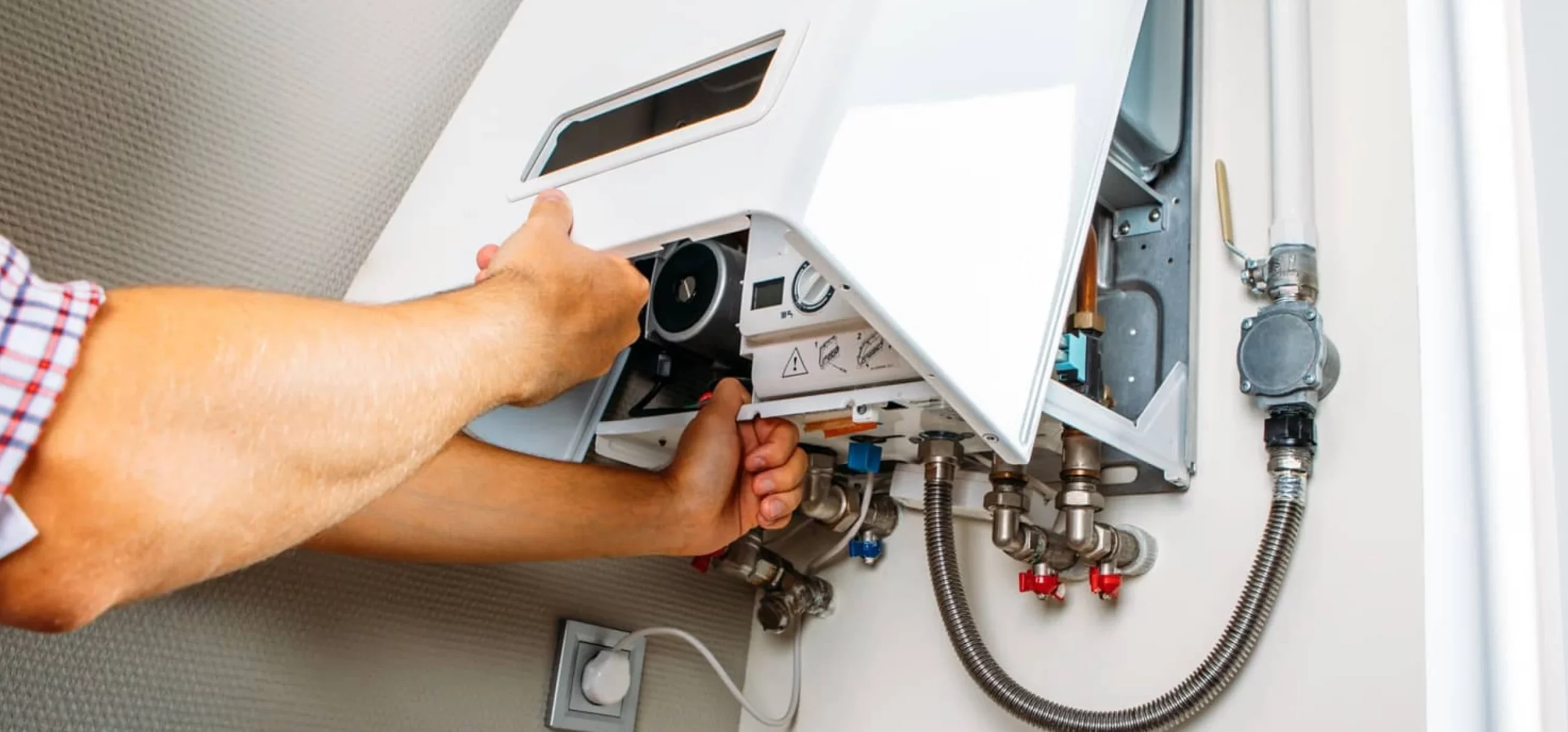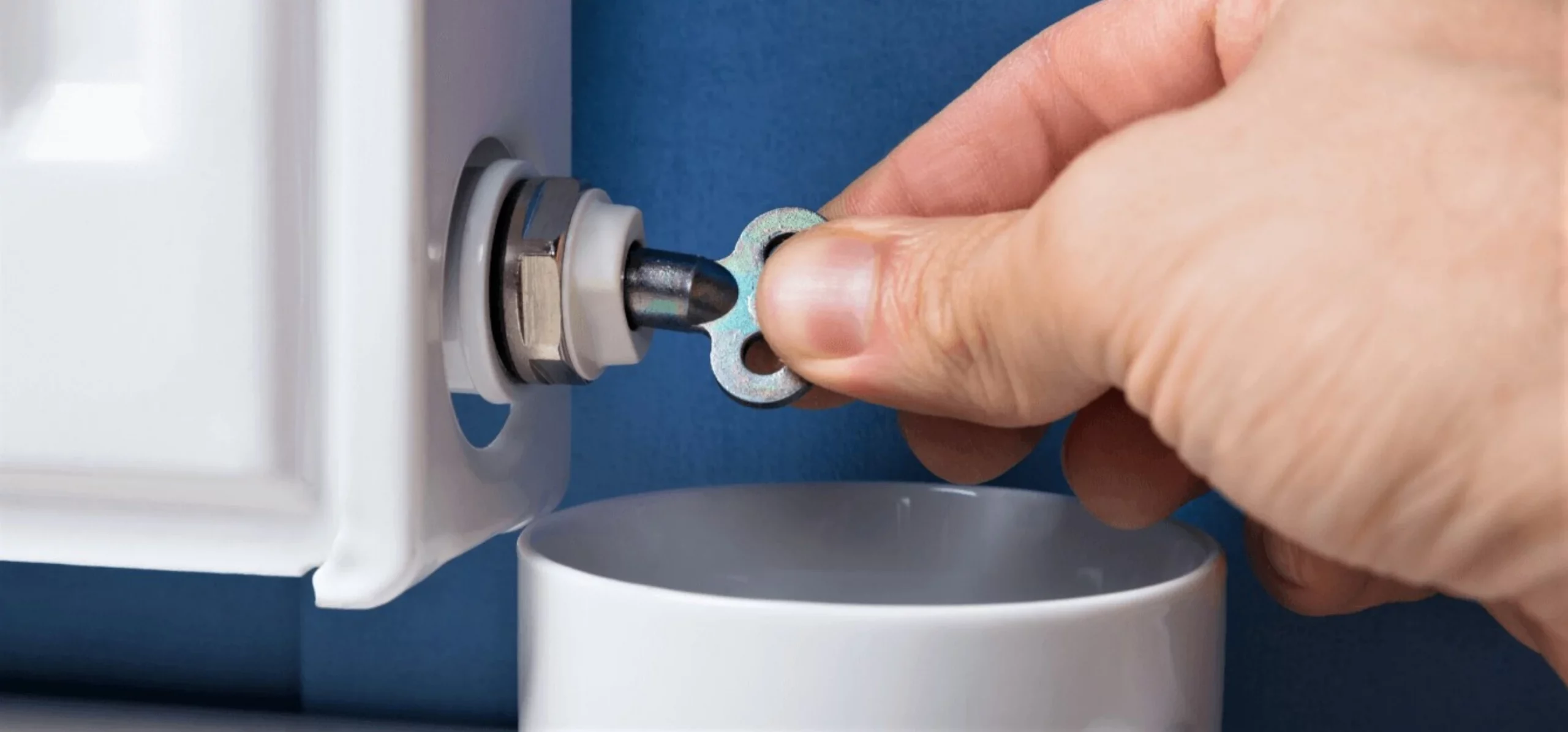Our guide to Winter boiler maintenance
Winter boiler maintenance is essential to ensure that your heating system runs efficiently and safely throughout the cold months. Here’s a checklist to help you with basic maintenance tasks, or to guide you when talking to a professional:

1. Check the Boiler Pressure
• Ideal Pressure: The pressure gauge should be between 1 and 1.5 bar when the boiler is cold. If it’s too low, the boiler might not function properly, and if it’s too high, it could cause damage.
• To fix low pressure: You can top up the system using the filling loop (usually a silver or flexible hose).
• To fix high pressure: You may need to bleed radiators or adjust the pressure relief valve. If you’re unsure, call a professional.
2. Check for Leaks
• Inspect visible pipes, radiator valves, and the boiler itself for any signs of water leakage. Even small leaks can cause system inefficiency or damage over time.
• If you detect a leak, call a professional to have it repaired.
3. Clean the Boiler and Vents
• External Clean: Wipe down the external parts of the boiler to remove dust and debris. Make sure the vents are not blocked.
• Internal Clean: A professional technician can perform a chemical flush to remove sludge and debris from the system, improving efficiency and longevity.
4. Test the Boiler’s Performance
• Turn the heating on and check if all radiators are heating up evenly. If any radiators are cold at the top or bottom, this could indicate an issue like trapped air, sludge, or a problem with the pump.
• Ensure that the hot water runs consistently at your desired temperature.
5. Bleed Radiators
• Why: Trapped air in the system can cause cold spots and reduce heating efficiency.
• How: Use a radiator key to release the air. Hold a cloth underneath the valve to catch any drips of water.
• After bleeding: Check the boiler pressure again and top it up if necessary.

6. Check the Boiler’s Flame Colour
• A healthy gas boiler should have a blue flame. A yellow or orange flame indicates incomplete combustion, which can be dangerous and requires a professional inspection.
7. Ensure Proper Ventilation
• Boilers need adequate ventilation to work safely. Ensure that vents and flues are clear of any obstructions, such as leaves, debris, or snow.
• Important: If you have a gas boiler, make sure there is no carbon monoxide buildup in your home. Install a CO detector near the boiler and in sleeping areas for added safety.
8. Look for Error Codes
• Check your boiler’s display for any error codes or warning lights. Refer to the manual for troubleshooting steps, or call a professional if you’re unsure.
9. Schedule an Annual Service
• Even if you perform basic checks yourself, it’s highly recommended to have a Gas Safe-registered engineer service your boiler at least once a year. This ensures that everything is functioning correctly and helps extend the life of your system.
10. Check the Thermostat
• Ensure the thermostat is working correctly and is set at the appropriate temperature. If the temperature is too high, it may strain the system, while too low may result in inadequate heating.
11. Consider Insulation
• To help your boiler work more efficiently, ensure that your home is well insulated, especially the pipes and any areas where heat can escape. This helps to maintain warmth and reduce strain on the boiler.
Warning Signs That Require Professional Help:
• No hot water or heat.
• The boiler makes strange noises (like gurgling, banging, or whistling).
• The pilot light keeps going out (for gas boilers).
• If you notice any unusual smells, especially gas, turn off the boiler and ventilate the area immediately before calling a professional.
Performing these checks and routine maintenance can help ensure your boiler is running at peak performance and can prevent costly repairs down the line.
Published: 11th Nov 2024
If you have any questions contact Glasgow Gas Engineers today!
